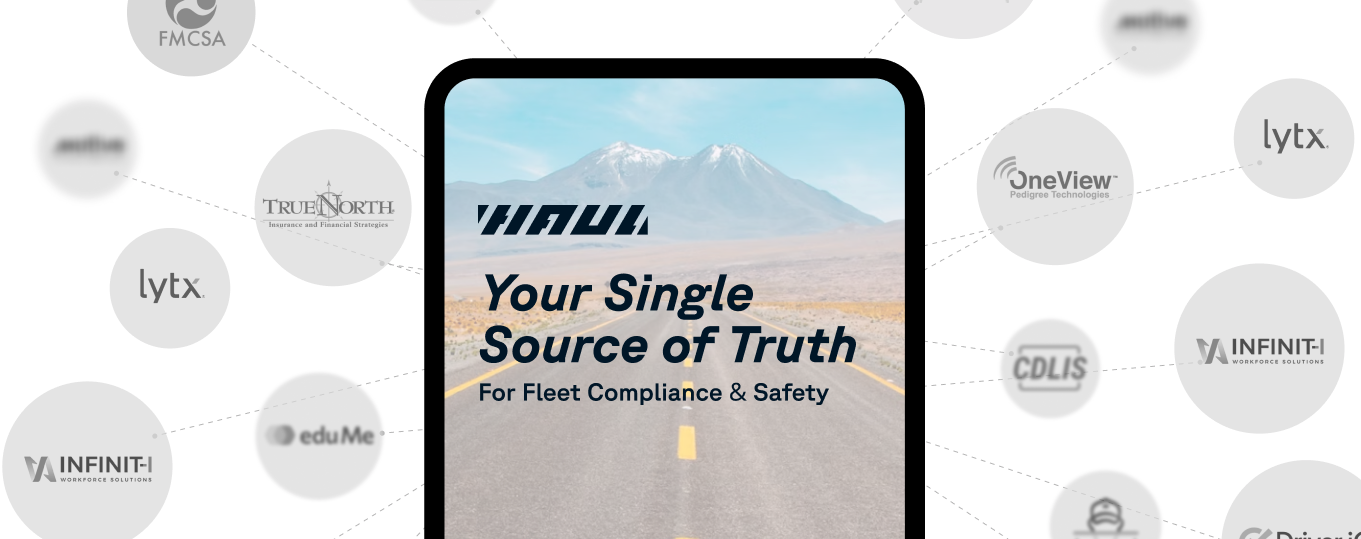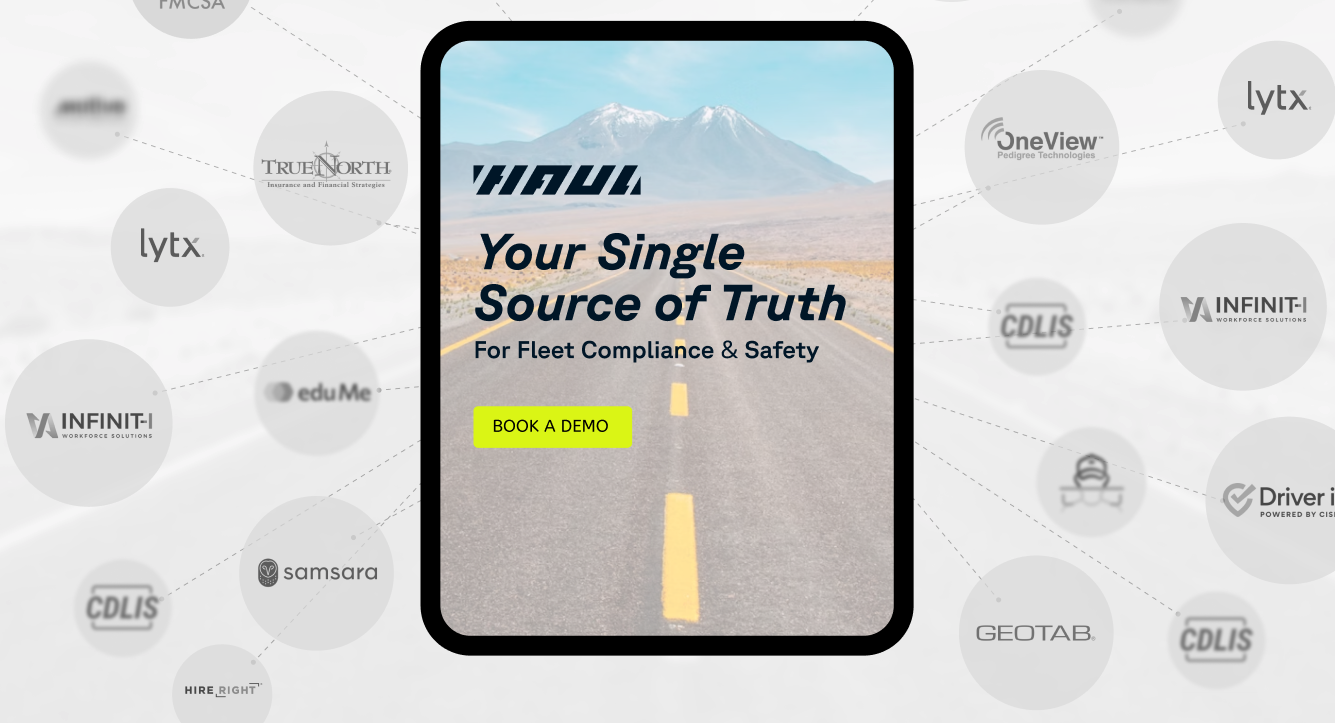Understanding Commercial Truck Insurance in Illinois

Navigating the world of commercial truck insurance can be a daunting task. Especially in Illinois, where state-specific regulations add another layer of complexity.
This article aims to simplify that journey. It's designed to provide a comprehensive understanding of commercial truck insurance in Illinois.
We'll delve into the intricacies of insurance requirements, options, and strategies. We'll also explore how to manage risk and ensure compliance with state regulations.

by Toni Pomar (https://unsplash.com/@t3k)
The role of technology in improving operational efficiency will also be highlighted. Real-time insights and alerts can be game-changers in managing your fleet's insurance.

Whether you're a fleet manager, logistics director, or risk management officer, this guide is for you. Let's embark on this journey to better understand commercial truck insurance in Illinois.
Navigating Illinois Truck Insurance Requirements
Understanding Illinois truck insurance requirements is crucial. It's the first step in ensuring your fleet is adequately covered.
Commercial truck insurance isn't a one-size-fits-all solution. The right coverage depends on various factors. These include the type of cargo, the truck's size, and the areas of operation.
Insurance requirements can also vary based on whether your fleet operates interstate or intrastate. It's essential to understand these nuances.
Non-compliance with insurance requirements can lead to hefty fines. Worse, it can result in the suspension of your operating authority.
In the following sections, we'll delve deeper into the basics of commercial truck insurance in Illinois. We'll also discuss state-specific regulations and compliance.
The Basics of Commercial Truck Insurance in Illinois
Commercial truck insurance in Illinois is multi-faceted. It's designed to protect your business from various risks.
At its core, it provides liability coverage. This is mandatory and covers damages or injuries caused by your truck in an accident.
Physical damage coverage is another component. It covers repairs or replacement of your truck if it's damaged or stolen.
There's also cargo insurance. It covers the goods you're transporting if they're damaged or lost.
Understanding these basics is key. It helps you assess the right level of coverage for your fleet.
State-Specific Regulations and Compliance
Illinois has specific regulations for commercial truck insurance. These are set by the Illinois Department of Transportation (IDOT).
For instance, the minimum liability coverage for trucks over 10,000 pounds is $750,000. But this can go up to $5 million for trucks transporting hazardous materials.
Compliance with these regulations is non-negotiable. It's a legal requirement for operating a commercial fleet in Illinois.
Staying updated on these regulations is crucial. It ensures your fleet remains compliant and avoids unnecessary penalties.

Types of Coverage for Illinois Trucking Operations
Commercial truck insurance in Illinois is not a monolith. It's a blend of different coverages, each addressing a specific risk.
Liability coverage is the cornerstone. It's legally required and covers third-party damages and injuries.
But liability coverage alone isn't enough. There are other risks that your fleet might face.
Physical damage coverage, for instance, protects your trucks. It covers repair or replacement costs if they're damaged or stolen.
Cargo insurance is another crucial coverage. It protects the goods you're transporting.

by Viktor Bystrov (https://unsplash.com/@xokvictor)
Liability Coverage: The Non-Negotiable
Liability coverage is the bedrock of commercial truck insurance. It's mandatory in Illinois, as in most states.
This coverage kicks in if your truck is involved in an accident. It covers damages or injuries caused to others.
But remember, liability coverage doesn't protect your truck or cargo. For that, you need additional coverages.

Additional Coverage Options to Consider
Beyond liability coverage, there are other options to consider. These additional coverages provide a safety net for your fleet.
- Physical Damage Coverage: Covers repair or replacement costs for your truck if it's damaged or stolen.
- Cargo Insurance: Protects the goods you're transporting if they're damaged or lost.
- Non-Trucking Liability: Covers damages or injuries caused by your truck when it's not under dispatch.
- Trailer Interchange: Covers damages to a trailer you're pulling under a trailer interchange agreement.
Each of these coverages addresses a specific risk. Together, they provide comprehensive protection for your fleet.
Cost Management Strategies for Fleet Managers
Managing commercial truck insurance costs is a balancing act. You need to ensure adequate coverage while keeping premiums manageable.
One strategy is to bundle policies. Many insurers offer discounts for multiple coverages.
Another strategy is to maintain a strong safety record. Insurers reward fleets with fewer accidents and violations.
Finally, consider your deductible. A higher deductible can lower your premium, but it also means higher out-of-pocket costs if a claim arises.
Balancing Coverage and Cost
Striking the right balance between coverage and cost is crucial. Too little coverage can leave you exposed to financial risk.
On the other hand, too much coverage can strain your budget. It's about finding the sweet spot.
Consider your fleet's specific risks. Tailor your coverage to address these risks without over-insuring.
Remember, the cheapest policy isn't always the best. Look for value, not just price.
Leveraging Safety and Technology for Better Rates
Technology can be a game-changer for managing insurance costs. Telematics, for instance, can provide real-time data on your fleet's operations.
This data can help you identify risky behaviors. Addressing these behaviors can improve safety and lower insurance costs.
Driver training programs are another effective tool. They can help reduce accidents, which can lead to lower premiums.

by Joshua Lawrence (https://unsplash.com/@orangetiephotography)
Insurance companies value fleets that invest in safety and technology. These investments can lead to better rates and more favorable terms.

The Role of Technology in Insurance Management
Technology is transforming the way we manage commercial truck insurance. It's not just about digitizing paperwork anymore.
Real-time data from telematics can provide valuable insights. These insights can help you make informed decisions about your insurance coverage.
Predictive analytics can also play a role. They can help you anticipate risks and adjust your coverage accordingly.
Insurance management software can streamline the process. It can help you track policies, claims, and compliance documents.

by Iyus sugiharto (https://unsplash.com/@iyussugiharto)
Real-Time Data and Predictive Analytics
Real-time data can be a game-changer for insurance management. It can provide insights into driver behavior, vehicle performance, and more.
Predictive analytics takes this a step further. It uses historical data to predict future risks.
For instance, it can help identify drivers who are more likely to be involved in accidents. This can help you take proactive measures to prevent accidents.
In turn, this can lead to lower insurance premiums and better risk management.
Enhancing Transparency and Partnership with Insurers
Transparency is key in managing commercial truck insurance. It's about being open and honest with your insurer.
Share your safety records, risk management strategies, and other relevant information. This can help build trust with your insurer.
A strong partnership with your insurer can lead to better terms. It can also make the claims process smoother.
Remember, your insurer is not just a service provider. They're a partner in managing risk and protecting your fleet.
Conclusion: Embracing Innovation in Truck Insurance
In the end, understanding commercial truck insurance in Illinois is about embracing innovation. It's about leveraging technology to manage risk, ensure compliance, and improve operational efficiency.
Remember, insurance is not just a cost of doing business. It's a strategic tool that can protect your fleet, your drivers, and your bottom line.


